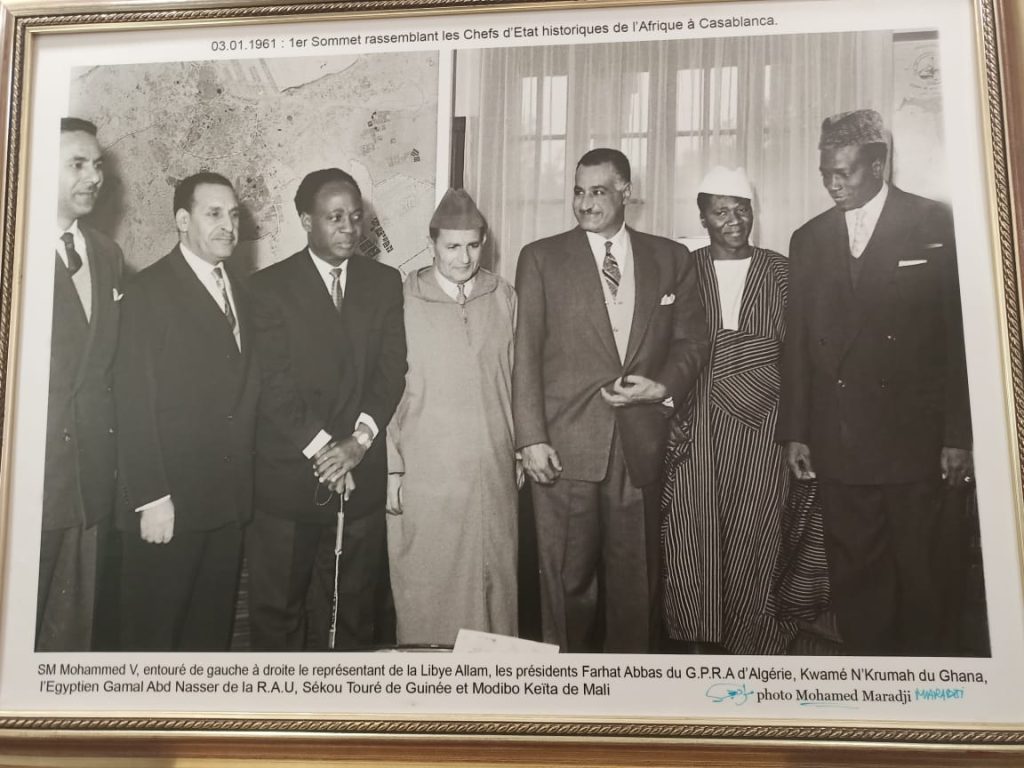By Edward Acquah
Rabat (Morocco), May 26, GNA- The dream of the founding fathers of the Organisation of African Union (OAU) to build a united Africa was resurrected when the Kingdom of Morocco observed series of ceremonies at its capital, Rabat, on Thursday, to commemorate the 60th “Africa Day” celebration.
“Africa Day”, which is observed annually by all member states, celebrates the establishment of the OAU, now the African Union (AU) in 1963.
The Kingdom held series activities aimed at echoing Morocco’s legacies and contributions towards the liberation of the continent decades ago and pushed for the integration of Africa in line with the vision of the founding fathers of the then OAU.
Morocco is also advocating for the deployment of Africa’s own expertise and resources to solve challenges confronting the continent while boosting trade, knowledge sharing, and cooperation within the continent.
A special ceremony was held at Morocco’s Ministry of Foreign Affairs at Rabat Thursday, which assembled an array of dignitaries from across the continent for the historic celebration.
The event was characterised by speeches from dignitaries, who were unanimous in their call for the unification of the continent and the promotion of South-South cooperation particularly in the areas of intra-Africa trade.
There was also a photo exhibition at the Ministry, showcasing historic moments that details how Morocco spearheaded and coordinated Africa’s liberation efforts.
In a documentary titled: “Morocco and the liberation movements in Africa”, Morocco documented its instrumental role in Africa’s emancipation and the vision of His Majesty King Mohammed VI to forge strategic and mutual partnerships with African countries.
The events for the commemoration were crowned at the King Mohammed V Theatre in Rabat, where patrons were thrilled with cultural performances from selected African countries, including Ghana with a key message: “unity in diversity”.

Thereafter, participants were offered the opportunity to taste selected local dishes of some African countries, that displayed their rich cuisine.
After securing independence in 1956, the Kingdom of Morocco, under the able leadership of the late King Mohammed V, convened what became known as the Casablanca Conference in 1961 to mobilise prominent African leaders at the time towards the unification and total liberation of the African continent.
The North African country subsequently provided diplomatic and military support to Africa’s liberation movements and provided shelter for some African leaders, including Nelson Mandela (South Africa), Amilcar Cabral (Guinea Bissau), Moussa Traore (Mali), and Robert Mugabe (Zimbabwe).
The OAU was subsequently established in 1963 as a pivot to achieving a self-sufficient continent that could compete successfully at the global stage.
Nasser Bourita, Morocco’s Minister of Foreign Affairs, African Cooperation and Moroccan Expatriates, who chaired the activities, said the late King Mohammed V made Morocco the home of liberation of African countries.
He said Morocco’s concentration was to build an Africa that could develop solutions for its own problems while boosting inter-country collaboration.
Mr Bourita said it was important for Africa to enhance the value of its cultural identity and indicated that “the flame of memories of the struggle should not be allowed to die”.
“We need to develop Africa, build bridges that stay together, he said, adding: “we must build an Africa that brings solution to its own problems”.
Mr Mouhamadou Youssifou, the Dean of African Ambassadors to Morocco, appealed to African countries to support the effective implementation of the African Continental Free Trade Area (AfCFTA) agreement.
He said the agreement should enable the continent to take millions of its citizens out of poverty while reducing dependency on countries outside the region.
Mr Youssifou also called for measures to be put in place to ensure that the opening up of the continent for trade would not be to the advantage of “great” conglomerates and multinational firms.
GNA